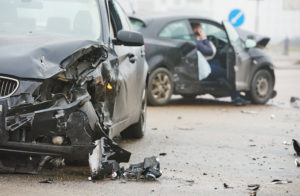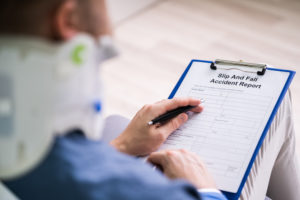What Are The 4 Ds of Medical Negligence?
Medical negligence is a serious tort, but a complex one to prove. It can refer to medication mistakes, surgical slip-ups, misdiagnoses, and other types of preventable errors in a health care setting that ultimately harm or kill a patient. To prove it, you need the four Ds of medical negligence.
These four are Duty of care, Dereliction of duty, Direct causation, and Damages. Learning whether you have grounds to prove these for a medical malpractice claim in Virginia requires the help of an attorney with experience in these cases.
Proving Medical Negligence
In any personal injury case, negligence is the key idea for finding fault. We have to prove that someone’s poor decisions or actions directly caused your injury. This is much trickier in medical cases than in something more straightforward, like a car accident.
Medicine is a practice, and there are no guarantees of a cure, or even survival, if you go to see a doctor. Yet the law gives us guidelines to prove whether a doctor was negligent or just unfortunate with a particular patient.
The four Ds of medical negligence are a rubric for proving medical negligence. If we can prove these four things in your case, you can win and receive compensation for the injuries you’ve suffered at the hands of the medical profession.
For a Free Legal Consultation
Call The Personal Injury Lawyer Hotline.
804-250-5050
Duty of Care
The first D is the duty of care. To bring a medical negligence claim against a defendant, the party must have owed you a professional duty of care at the time of the alleged wrongdoing. A duty of care is something the medical industry places upon any physician or facility that accepts a patient.
Any medical professional who has anything to do with your treatment or diagnosis has a duty of care toward you. Common defendants are doctors, surgeons, nurses, pharmacies, hospitals and health care centers. There could even be more than one defendant in your case.
Some of these duties of care include properly diagnosing, treating, and following up with you about your illness. Proving a defendant owed you a duty of care may require evidence, such as your patient records or the shift records of a hospital.
Let the Heavy Hitters® Take On Your Case 804-250-5050
Dereliction of Duty
The second D of medical negligence is dereliction of duty. Dereliction refers to a failure to fulfill one’s duty of care. A dereliction of duty by a medical professional describes any act or omission a reasonable and prudent professional would not have made in similar circumstances.
Prior cases have noted a wide range of acts that make up dereliction of duty by a doctor to their patients. Some of these include:
- Misdiagnosis
- Failure to diagnose
- Failure to treat
- Prescription errors
- Failure to warn of risks
- Surgical errors
- Wrong patient, site, or surgery
- Foreign object left behind
- Medical device defects
- Birth injury
- Emergency room errors
Your lawyer may prove this element using evidence such as medical records, eyewitness testimony, and statements from medical experts in comparable fields. The key thing to prove is that another reasonable medical professional would not have acted the way yours did.
Central Virginia's Top Rated Personal
Injury Lawyers 804-250-5050
Direct Causation
The third D is direct causation. Your medical malpractice lawyer must be able to prove a direct causal connection between the defendant’s dereliction of duty and your injury, illness or a loved one’s wrongful death.
The physician or hospital must have directly caused the damages in question by breaching a duty of care owed to you as a patient. Without proximate cause, the defendant may not be liable for your damages.
For instance, if you had a terminal illness and would have experienced a decline of health even with a timely diagnosis, a physician might not be liable for a delayed diagnosis. The defendant’s mistake must be the primary cause of your damages.
Another example where direct cause would fail is if you didn’t follow your doctor’s instructions. If a doctor gives you medicine and you refuse to take it, you can’t say that their advice caused any consequence for not taking the medicine.
Let Us Be The Heavy Hitters® For Your Case Speak To An Attorney Now
Damages
The final D of a medical negligence claim in Virginia is damages. A defendant may not owe you compensation, even if he or she was negligent, if the breach of duty did not give you any compensable losses.
Your lawyer must show proof of specific, quantifiable damages related to the defendant’s negligence, recklessness or default. Common damages in a medical malpractice claim include hospital bills, pain and suffering, lost wages, lost earning capacity, legal fees, lost quality of life, and punitive damages.
Damages are often the easiest part to prove. You normally wouldn’t approach a medical negligence lawyer without something bothering you. However, your total potential damages may be far more than you know, especially for ongoing care or being forced onto disability.
An Example of the Four Ds
Let’s say that a doctor left a surgical instrument inside you that caused pain, scarring, and internal injuries over time. Later, an X-ray discovers the lost instrument. What are the four Ds in this case?
- Duty of Care – The surgical team was supposed to take care of their tools and you.
- Dereliction of Duty – A reasonable surgical team would have taken measures to avoid leaving any tools behind in a patient.
- Direct Causation – The only way a surgical tool is likely to end up in a patient is on an operating table.
- Damages – The pain, scarring, and internal injuries are all evidence of damages.
How the Opposing Side will Fight Back
Naturally, the lawyers on the opposing side will work to prove that one or more of these four Ds of medical negligence aren’t valid in your case. All four must be present for you to win a lawsuit. Without a lawyer, this is very hard to do on your own.
Medical malpractice insurers often have their own doctors come forward to dispute that your doctor or hospital did nothing wrong, and it’s very hard for a layperson to counter those claims. We have access to our own independent doctors who will give an unbiased opinion about your case.
Along with that, we have helped many clients with medical malpractice cases. We know the legal tactics hospitals and opposing counsel will try to take to invalidate your claim. With our help, you can fight back.
Why You Need a Medical Malpractice Lawyer
Proving the 4 Ds of medical negligence is next to impossible without the help of a medical malpractice lawyer. Medicine is such an uncertain job that the law has a lot of leeway about medical errors.
Medical malpractice lawyers work with other medical professionals to discover whether or not someone else broke the standards of care. Medical professionals go through years of schooling, and it takes the opinion of someone else with the same expertise to truly judge an error.
These lawyers then take that evidence to prove to insurers and courts that their clients are worthy of compensation and negotiate for high settlements. If the other side won’t listen, they’re prepared to take defendants to court and let the law decide.
Prove the 4 Ds with Our Help
You do not have to file or prove your medical negligence claim alone in Virginia. A medical malpractice attorney in Virginia could help you fulfill your burden of proof by obtaining and presenting evidence of all four Ds to bring a successful medical negligence claim.
The personal injury lawyers at Christina Pendleton & Associates can take care of complicated legal requirements—including the burden of proof—on your behalf while you focus on healing from your malpractice-related injuries.
The Pendleton Law Team Is Here For You 804-250-5050



